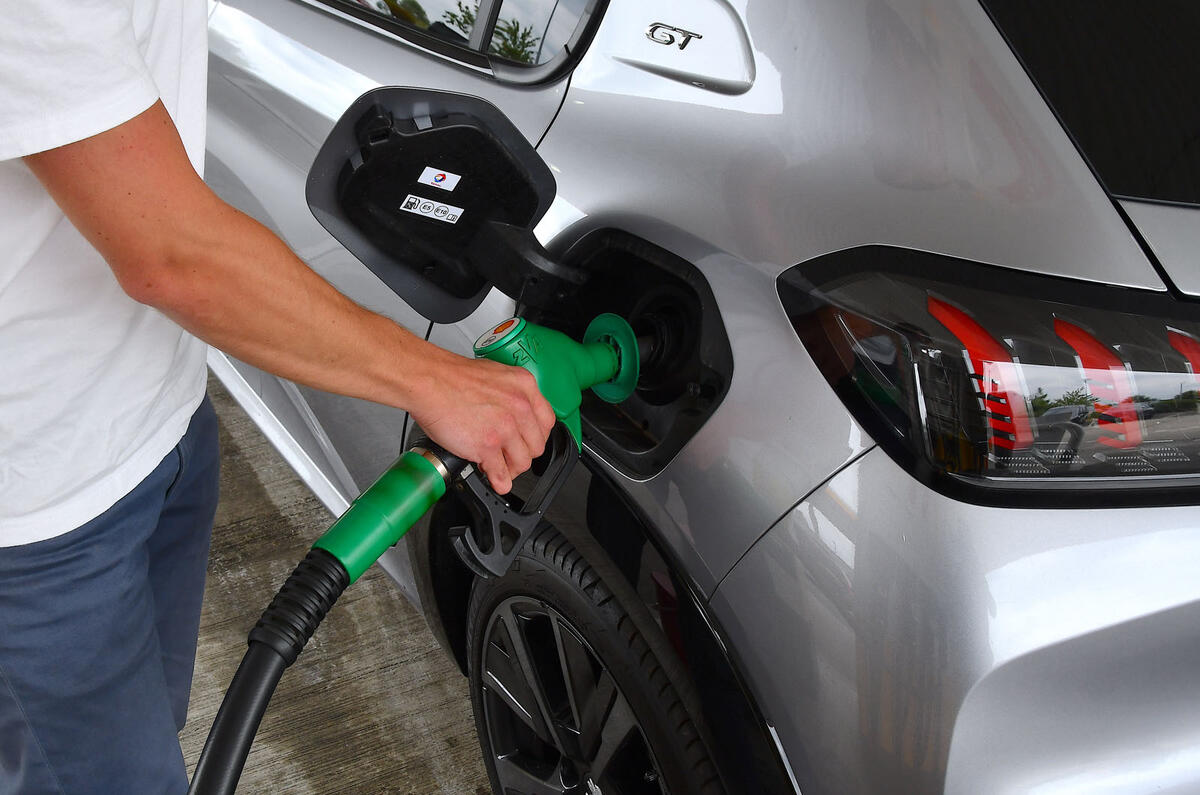Fuel duty might rise by 12 pence per litre in March 2023, according to the Office for Budget Responsibility’s November report.
A record cash increase, it would add £5.7 billion to the government’s receipts next year, said the OBR. This would be the first time a government has raised fuel duty in cash terms since January 2011.
Fuel duty currently stands at 52.95p per litre for petrol and diesel, having been cut by 5p per litre in March 2022.
There are concerns that any increase would push fuel prices well beyond the current averages of 163.99 pence per litre for petrol and 188.42 pence per litre for diesel.
RAC fuel spokesman Simon Williams yesterday urged chancellor Jeremy Hunt to leave fuel duty “well alone,” arguing it “would force the millions of hard-working people who depend on their cars to spend even more on petrol and diesel, putting even more stress on already-squeezed household budgets”.
He added: “Our analysis shows there is a clear link between inflation and fuel prices. When the prices drivers pay to fill up rise, inflation seems certain to follow. That’s something the chancellor must recognise as he considers what action to take today.
“Last month, the Office for National Statistics stated the single main reason inflation wasn’t higher was because fuel prices had fallen through the summer. Unfortunately, going into the autumn, pump prices have been increasing again, which we fear will only put further upward pressure on the headline inflation rate.”
The rise of 12p per litre (23%) is not an official figure from the Treasury, but is instead based on OBR forecasting subject to change.
Any increase is expected to be announced as part of the spring budget statement in March 2023.
The OBR report comes as part of the autumn statement, in which it was announced that electric vehicles will be charged vehicle excise duty from April 2025.
Hunt said the move, affecting EVs registered from 1 April 2017, would make the motoring tax system “fairer”.
Benefit-in-kind tax on electric company cars will increase to 3% in April 2025, rising 1% each consecutive year, to 5% in 2027/28.







Join the debate
Add your comment
As Mark Carney said “In 2016 the British economy was 90% the size of Germany’s. Now it is less than 70%.”
Now you're going to have to pay for Brexit. That means more taxation. Thank the Brexiters for that one.
Motorists in ICE cars are being fleeced enough already subsidising EV users. Visit any Tesco in the mor ing and people are sat there using free electricity to charge their card while I pay £1.59 a litre for petrol. I am assuming the government has ZERO interest in actually winning the next election. The whole situation has been a pigs ears since Bozza was booted out.
Elsewhere, most are charging between 69-79p kWh which for many, is now more expensive than petrol/diesel.
Only place where charging is still relatively cheap is at home for which 30% don't have access to off-street parking.
A growing number of EV drivers are now asking the question if it's time to return to the dark side.
Unless you've got a big solar array and off-street parking, it's far from a bed of roses.